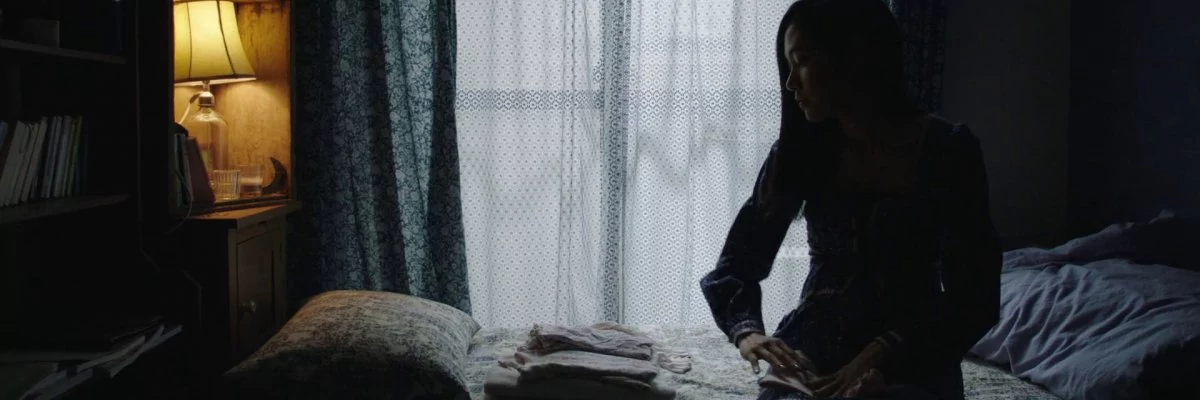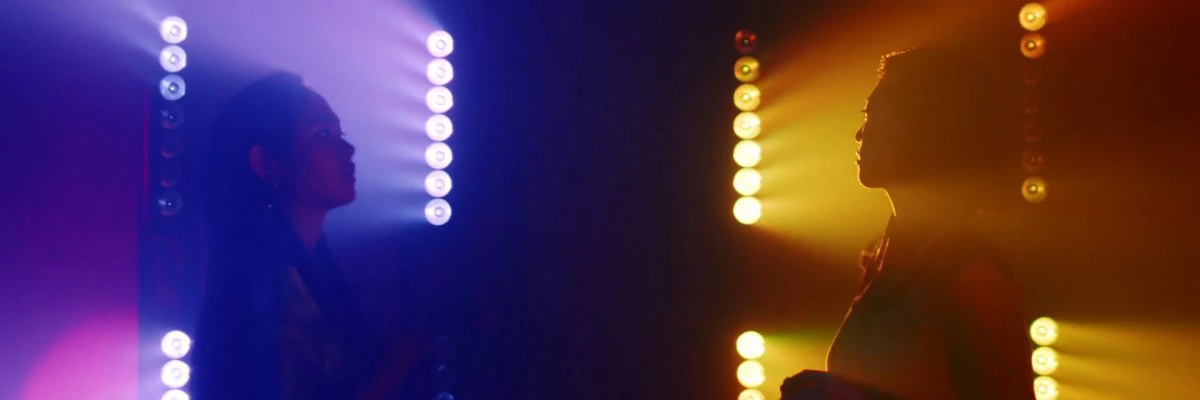Daughters

Looking for promising young directors is always a bit hit-and-miss, which makes stumbling upon someone who shows a lot of talent that much more satisfying. I expected to see a solid but predictable and safe Japanese drama when I sought out Hajime Tsuda's Daughters, one or two scenes in I was pretty confident I'd found a new personal favorite. While a film that still falls well within the expected boundaries of the genre, there's a pleasant, contemporary vibe that felt like a breath of fresh air. Fingers crossed the rest of the world will be able to enjoy Tsuda's debut too.

Japanese drama as a genre has been pretty stagnant the past couple of years. While it's a little early to draw big conclusions, it does seem something is stirring in the margins. For the longest time, other directors have been trying to mimic the success of Hirokazu Koreeda and Naomi Kawase. That has led to some competent films, but it's killed the joy and surprise, and it's made the genre a bit too formulaic. That's the price you pay for international niche success. It's good then there's a younger generation that is willing to carve their own way, distancing themselves from their illustrious predecessors.
Tsuda's film reminded me ever so slightly of Ken Ninomiya's work (Chiwawa, The Limit of Sleeping Beauty). It's not quite as style-driven or excessive, but it shares an affinity with a younger generation you don't often see in films. The film language in general feels more contemporary, more in touch with the age of the protagonists. I do need to add that it's been quite a while since I belonged to that generation of young 20-somethings, so it's more of an educated guess than experience talking here. Whatever the case, I thoroughly welcome this change.
Daughters tells the story of Koharu and Ayano, two young girls who share a home together. They are best friends and they both work in the design business, so they get along quite well. They have their entire lives in front of them, but things change when Ayano gets pregnant after a night of drunken debauchery. She doesn't want to reveal who the father is, but she plans on keeping the baby. Koharu is willing to help her out, but the two have underestimated the impact the pregnancy will have on their relationship. Even so, Ayano has her mind made up.

The cinematography feels very contemporary. The colors are vivid, the contrast is strong and the lighting is moody. If you want to approach it from a more negative angle I guess you could say the visuals have an Instagram feel to them, personally I'm not bothered by that at all. The camera work and editing also add some extra liveliness, mimicking and underlining the emotional state of the characters. These are all minor touches, but they help to move the film away from purely narrative drama to a more atmosphere-driven experience. A change I can only applaud.
The shift in the soundtrack is bigger and more noticeable. Gone is the reliance on either J-Pop or soft piano/string music, instead Tsuda opts for alternative/electronic pop music. It's a really welcome change of pace for contemporary Japanese dramas, which got to a point where they were simply too lazy and complacent in that department. Tsuda draws a lot of extra atmosphere from the music and adds the necessary gravitas where needed. A memorable score that directs the film and doesn't cower in the background, an example for many of its peers.
Ayaka Miyoshi and Junko Abe deserve praise for their work. Their characters feel very natural and there's tangible chemistry between the two, as if they were real-life besties. Their range is also quite spectacular as they cycle between different emotions without a hitch. The secondary cast is solid, but they're a supporting cast in the truest sense of the word. Shingo Tsurumi and Nene Ohtsuka deliver memorable performances without pulling too much attention to their characters, in the end this film is supposed to rest on the shoulders of Miyoshi and Abe and their performances are simply impeccable.

An unforeseen pregnancy isn't the most novel or dashing topic for a drama. The involvement of Ayano's best friend and the reluctance to inform the father add some necessary intrigue, though in the end Daughters is really all about the main characters and their relationship. Just hanging around with Ayano and Koharu as they live through the drama is plenty of fun, especially since the pregnancy doesn't overwhelm their entire lives. People looking for overt sentiment or struggles might be a little disappointed, I can't say I missed it.
Tsuda's Daughters is evolution, not revolution. It doesn't turn the genre upside down, nor is it distinctive enough to kick-start a whole new movement. But that's not a knock on the film. Daughters breathes new life into a genre that's become pretty stale of late, by updating its stylistic vocabulary while making sure all its dramatic beats hit the mark. It's one hell of a debut, hopefully Tsuda's film won't be buried in distribution limbo like so many other great Japanese films. If you get the chance to watch this one, don't let it pass you by.